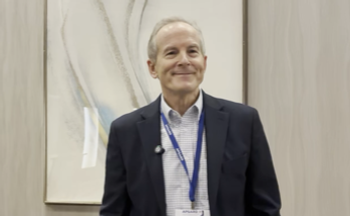
Reflections on “The New Normal”: Embracing Change
This year’s theme is crucial to the role science plays in dealing with structural racism, a worldwide pandemic, and the inequities in terms of access to care for so many people.
Q&A
We are pleased to present this Q&A with Philip R. Muskin, MD, a former Secretary of the American Psychiatric Association (APA), chair of the Scientific Program Committee for the 2020 APA Meeting, Professor of Psychiatry at
Psychiatric Times (PT): This year’s theme for the
Muskin: APA President Dr Jeffery Geller has selected a theme crucial to the role science plays in dealing with structural racism, a worldwide pandemic, and the inequities in terms of access to care for so many people.
PT: You will be speaking or moderating several sessions this year. Can you summarize the objectives of each and what excites you about sharing with attendees?
Muskin: Yes, I would be happy to.
Here’s Your Hat, What’s Your Hurry: Career Transitions in Academic Psychiatry: This session addresses the oft ignored issues of how we cope with planned and unplanned changes in our psychiatric careers, including the challenges of practicing psychiatry in during the pandemic. I am joined by 2 wonderful colleagues, Drs Sherry Katz-Bearnot and Linda Worley, who will use their own careers to illustrate career transitions.
Treatment of Severe Obsessive-Compulsive and Related Disorders: What Do You Do If First-Line Treatments Don’t Work? Chaired by Dr Katherine Phillips, this session will enable participants to more effectively treat these conditions, especially in patients who are more severely ill and who may not fully improve with first-line treatments.
The obsessive-compulsive and related disorders (OCRDs)—OCD, body dysmorphic disorder (BDD), hoarding disorder, trichotillomania, and excoriation (skin-picking) disorder—are a new chapter of disorders in both DSM-5 and ICD-11. They are common conditions that typically impair psychosocial functioning and quality of life, sometimes to a debilitating degree. Several of them are associated with elevated rates of suicidality.
Mental Health Research in the Era of Competing Crises: Presented by Dr Joshua Gordon, director of the
Educating and Supporting the Mental Health Workforce: This session is chaired by Dr Anita Everett and Umberto Carvalho, MPH, to present how Substance Abuse and Mental Health Services Administration (
PT: What aspects of the conference are you looking forward to this year?
Muskin: It is particularly exciting that Dr Anthony Fauci,
Dr Fauci is the long-time chief of the National Institute of Allergy and Infectious Diseases (
Isabel Wilkerson won the Pulitzer Prize for her work as Chicago Bureau Chief of The New York Times in 1994, making her the first Black woman in the history of American journalism to win a Pulitzer Prize and the first African American to win for individual reporting in the history of American journalism.
Dr Sapolsky is the author of several works of nonfiction; professor of biology and neurology at Stanford University; and the
PT: What are the most serious issues covered and why should psychiatrists stay informed about the topics presented this year?
Muskin: The meeting covers the entire scope of psychiatry, which is remarkable. Attendees will have the opportunity to focus on any issue of diagnosis, ethics, psychotherapy, psychopharmacology, and the cutting edge of psychiatric research.
PT: What is different this year from last year’s meeting?
Muskin: This is the first truly virtual full APA meeting. The Spring Highlights meeting in 2020 was a great introduction to virtual meetings. This year the Scientific Program Committee and the Office of the Scientific Program were truly able to prepare for a virtual meeting.
We literally reviewed thousands of submissions. Attendees can access the presentations for 24 hours, which means you can attend more than a full day of content, which is not possible in a live meeting. The downside is not being able to meet with colleagues. I am hopeful that the APAAM in 2022 will be an in-person meeting and we can all get together again.
Let us hear from you! Share comments about your meeting experience (or anything else) with your colleagues by emailing
Newsletter
Receive trusted psychiatric news, expert analysis, and clinical insights — subscribe today to support your practice and your patients.







